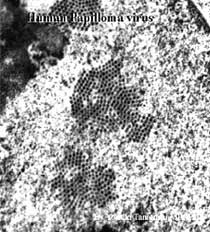Virus scan
 a test for the sexually-transmitted human papilloma virus ( hpv ) may rival the pap smear as an accurate way of testing for cancer and pre-cancerous conditions.
a test for the sexually-transmitted human papilloma virus ( hpv ) may rival the pap smear as an accurate way of testing for cancer and pre-cancerous conditions.
The pap smear, which costs us $25 to $35, is the most widely used screening test. It requires a skilled professional to do a pelvic exam and scrape cells from a woman's cervix. The cells are then analysed under a microscope. But in hpv testing, which costs $45 to $60, women themselves can collect a sample of cervical tissue at a clinic or doctor's office using a small brush or cotton swab. The tissue is then analysed for dna from 13 types of hpv considered to be the main culprits in cervical cancer.
In the first study, Thomas Wright Jr of Columbia University and colleagues from avsc International, usa and the University of Cape Town, South Africa screened and followed 1,365 black South African women in the 35 to 65 age group. Using the hpv test, the researchers identified 37 of 56 women with high-grade cervical disease or cancer - a detection rate of 66 per cent.
In the second study, led by Mark Schiffman of the National Cancer Institute, usa , researchers screened 8,554 women above the age of 18 in Costa Rica. A total of 138 cases of high-grade cervical disease or cancer were found, the detection rate being 88 per cent.
However, the two studies found that the hpv test produced far more false reports compared to the pap smear. It forced many more women to go for further testing.
In the first case, the pap smear identified 38 of the 56 women - a detection rate of 68 per cent, 4 per cent better than the hpv test. But the false detection rate for the hpv test was 17 per cent, while that for pap smear was only 12 per cent. In the second case, the pap smear reported a 78 per cent detection rate. But hpv had almost twice the rate of false-positives, 11 per cent to 5.8 per cent for pap smear tests.
The number of false reports, therefore, puts doubts on the hpv test's widespread use. As a screening technique, the test may be most applicable in developing countries, where pelvic exams and lab exams of cervical cells are often unavailable, says Jack Cuzick of the Imperial Cancer Research Fund in London.
The hpv test is now licensed in the United States only as a follow-up to an abnormal pap smear. It has not been approved for routine screening, though it is available for that purpose in other countries.
The test is based on the discovery that hpv causes almost all cases of cervical cancer. hpv infects an estimated 40 million Americans and many more people worldwide. Though most of hpv 's 80 strains cause no permanent harm, perhaps 1 per cent of infected people get a strain that can cause cervical cancer.
Worldwide, almost 360,000 cases of cervical cancer were detected in 1990, with 190,000 women dying of the disease.
Related Content
- Order of the High Court of Jharkhand regarding lack of medicines and machines to tackle COVID-19 in Jharkhand, 17/04/2021
- Measles virus infection diminishes preexisting antibodies that offer protection from other pathogens
- Gujarat government scan finds Amraiwadi area to be Zika sensitive
- Rajasthan: 500 houses to be scanned daily after Zika scare
- Swine flu scanners are back at Sri Lanka's International airport
- 175 Blood samples of birds taken for scanning
